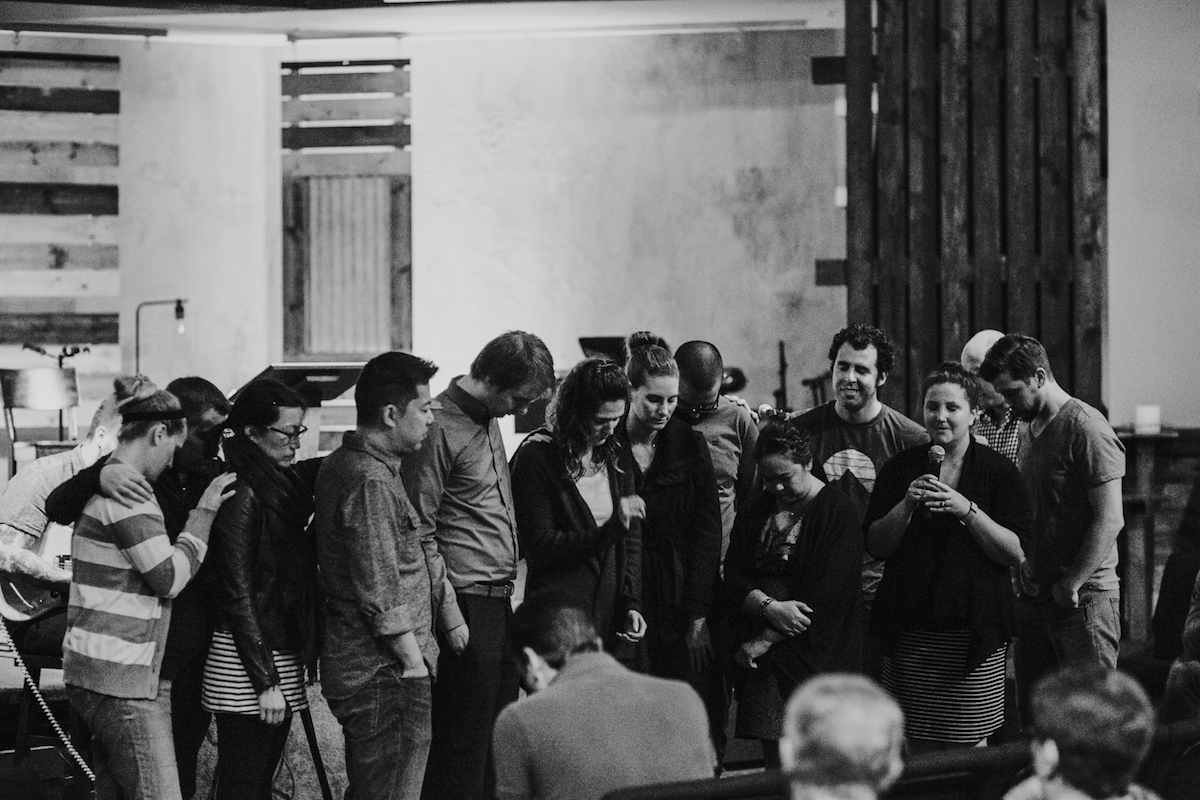“By faith Moses, when he grew up, refused to be called the son of Pharaoh’s daughter, choosing rather to be mistreated with the people of God than to enjoy the fleeting pleasures of sin. He considered the reproach of Christ greater than the treasures of Egypt, for he was looking to the reward” (Hebrews 11:24-26, ESV).
Many people view churches as an unnecessary, or even manipulative, institution not particularly valuable for spiritual growth or personal well-being. This mindset has only increased in our post-modern and post-Christian culture. Because of this, joining a church is one of the most counter-cultural things a person can do.
Becoming a church member means leaving behind the comfort of individualism and voluntarily allowing yourself to be bound to others. It is a beautiful picture of the Gospel. And we do this because Jesus joyfully left behind his comfort and bound himself to us.
Many find church membership a complicated topic. They aren’t sure why membership is necessary if they are otherwise committed to the church. The Bible contains at least five strands of evidence for local church membership. Each reveals something vital to the Christian faith which would be minimized or denied if there were no definable local church membership.
1) Body
Church membership is implied in the metaphor of the body of Christ.
“The eye cannot say to the hand, “I have no need of you,” nor again the head to the feet, “I have no need of you.” On the contrary, the parts of the body that seem to be weaker are indispensable, and on those parts of the body that we think less honorable we bestow the greater honor, and our unpresentable parts are treated with greater modesty, which our more presentable parts do not require. But God has so composed the body, giving greater honor to the part that lacked it, that there may be no division in the body, but that the members may have the same care for one another. If one member suffers, all suffer together; if one member is honored, all rejoice together” (1 Corinthians 12:21-26, ESV).
There is a unity and organic relationship implied in the imagery of the body. There is something unnatural about a Christian attaching himself to a body of believers and yet not choosing to be a functioning member of that body.
2) Shepherding
Church membership is implied in the way the New Testament requires elders to care for the flock in their charge. Elders can extend their focus and care to anyone within the limits of their ability. However, it would seem that the Bible gives elders a special responsibility to care for a specific group or community of people.
“Pay careful attention to yourselves and to all the flock, in which the Holy Spirit has made you overseers, to care for the church of God, which he obtained with his own blood” (Acts 20:28, ESV).
These verses do not say elders cannot invest in unbelievers or those who are not yet church members, but it does make clear that their first responsibility is to a particular flock. How do elders know who their flock is if not through membership?
3) Discipline
Church membership is implied by the way the church is supposed to discipline its members. The church appears to be the final court of appeal in matters of church authority as it relates to membership.
“If your brother sins against you, go and tell him his fault, between you and him alone. If he listens to you, you have gained your brother. But if he does not listen, take one or two others along with you, that every charge may be established by the evidence of two or three witnesses. If he refuses to listen to them, tell it to the church. And if he refuses to listen even to the church, let him be to you as a Gentile and a tax collector” (Matthew 18:15-17, ESV).
If there is no such thing as church membership, how do we define the group of people who will take up this extraordinarily delicate and vital matter of exhorting those who are unrepentant and finally rendering a righteous judgment about their standing in Christian community? It’s hard to believe that just anyone who shows up claiming to be a Christian should be a part of this process. “The church” must be a definable group to handle such weighty matters so that we know who the Scripture is referencing when it says “take it to the church.”
4) Excommunication
The fact that excommunication exists implies church membership. Paul indicates this in 1 Corinthians 5:12-13 where he deals with the necessity of putting someone out of the church.
“For what have I to do with judging outsiders? Is it not those inside the church whom you are to judge? God judges those outside. ‘Purge the evil person from among you’” (1 Corinthians 5:12-13, ESV)
There are two significant implications here: One is that there is an “in the church” group and an “outside the church” group. Being in the church is definable. The other implication is that a person can be removed from being “in the church.” Such a formal removal would not be possible if there were no such thing as membership. Membership helps to define who is an accountable part of the church body.
5) Submission
Church membership is implied in the biblical requirement of all Christians to be submitted to a group of church leaders, elders, or pastors. The New Testament commands individuals to submit to a specific group of leaders.
“Obey your leaders and submit to them, for they are keeping watch over your souls, as those who will have to give an account. Let them do this with joy and not with groaning, for that would be of no advantage to you” (Hebrews 13:17, ESV).
This verse seems to imply that individuals need to have expressed willingness or agreement to submit to a group of leaders. Membership helps define who has made the commitment to be led. It is also important to know who has been chosen to lead in this process. If we neglect the importance of membership, it becomes difficult to see how we can obey this command practically.
And so for these reasons, our church implemented church membership as an encouraged option for our attendees early on in the life of our church. We’ve seen the fruit of that in many ways, and we’ve also experienced the hardships that come with church discipline and things of the sort. But we believe we are modeling our church in the way that God envisioned, and that gives us great joy in the process.











